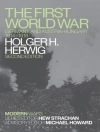If the frontier, in all its boundless possibility, was a central organizing metaphor for much of U.S. history, today it is arguably the border that best encapsulates the American experience, as xenophobia, economic inequality, and resurgent nationalism continue to fuel conditions of division and limitation. This boldly interdisciplinary volume explores the ways that historical and contemporary actors in the U.S. have crossed such borders—whether national, cultural, ethnic, racial, or conceptual. Together, these essays suggest new ways to understand borders while encouraging connection and exchange, even as social and political forces continue to try to draw lines around and between people.
Spis treści
List of Figures
Acknowledgments
Introduction
Paul Otto and Susanne Berthier-Foglar
Part I: Historical Border Crossing: National, Ethnic, and Theoretical
Chapter 1. American Indians and U.S.–Canada Trans-Border Migration: Opportunity and Refuge
Roger L. Nichols
Chapter 2. Warped Mirrors: Shifting Representations and Asymmetrical Constructs on the Border(s) of the American Southwest
Jeffrey Swartwood
Chapter 3. “Dare to Dance Your Own Dance”: Transgressing Aesthetic Borders in Early Twentieth-Century American Theatrical Dance
Claudie Servian
Chapter 4. Border Work: The Migration of Los Angeles Japanese Americans from the Manzanar Relocation Center to Father Flanagan’s Boys Town during World War II
Heather Fryer
Chapter 5. From Geographical to Virtual Borders in New York City: From Little Italy to Chinatown
Marie-Christine Michaud
Part II: Permeability in Border and Migration Policy
Chapter 6. Realizing Government Ambitions: Policing Insiders and Outsiders
Jon Wiebel
Chapter 7. Detention for Deterrence? The Strategic Role of Private Facilities and Offshore Resources in U.S. Migration Management
Marietta Messmer
Part III: National Borders, Liminal Spaces, and Permeation
Chapter 8. Douglas, Arizona, and Agua Prieta, Sonora: Cross-border Relationships and Security Issues
Cléa Fortuné
Chapter 9. (Dis)continuities of the Border Spectacle: An Analysis of a Binational Park in San Diego, California
Marko Tocilovac
Chapter 10. A Durable Permeation: Imagination, Motion, and Differentiation at the Border between Canada and the United States
Victor Konrad
Afterword: Permeability and the Making and Unmaking of Borders
David C. Atkinson
Index
O autorze
Paul Otto is Professor of History at George Fox University. He earned a Ph.D. at Indiana University and has been the recipient of several grants and fellowships, including support from the Andrew W. Mellon Foundation, the National Endowment for the Humanities, and the National Humanities Center. He has published several articles, and his book, The Dutch-Munsee Encounter in America: The Struggle for Sovereignty in the Hudson Valley, won the Hendricks Award for the best volume in colonial Dutch studies.












